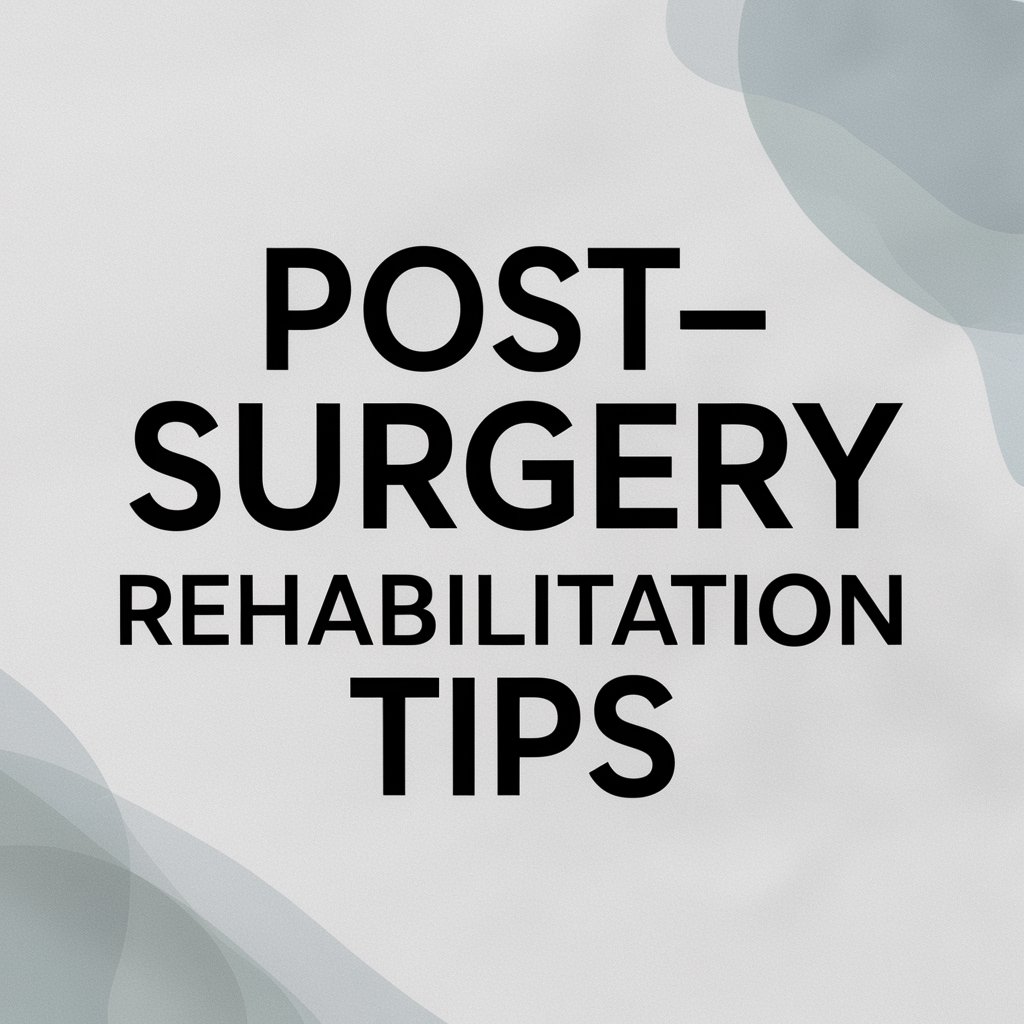Undergoing surgery is a significant event that requires careful attention to recovery and rehabilitation. Whether you’ve had a major operation or a minor procedure, the road to full recovery often involves a structured rehabilitation plan. This period is crucial for restoring strength, mobility, and overall well-being. Here are essential tips to help you navigate post-surgery rehabilitation effectively:
1. Follow Medical Advice
First and foremost, adhere strictly to your doctor’s post-surgery instructions. This includes medication schedules, wound care, physical activity limitations, and dietary guidelines. Your healthcare provider knows your specific condition and recovery needs best, so their advice is paramount to a successful recovery.
2. Start Slow, Progress Gradually
While it’s natural to want to resume normal activities quickly, it’s important to start slow and gradually increase your activity level. Begin with light movements recommended by your doctor or physical therapist, such as gentle stretching or short walks around your home. Overexertion can delay healing and potentially cause complications.
3. Physical Therapy
Many surgeries require physical therapy to regain strength, flexibility, and function. Attend all scheduled physical therapy sessions and follow the exercises prescribed by your therapist. These exercises are designed to target specific muscle groups or joints affected by surgery and help you regain mobility safely.
4. Pain Management
Pain is a common concern post-surgery. Work closely with your healthcare team to manage pain effectively. This may include medications, ice or heat therapy, or non-medical pain relief techniques such as relaxation exercises or distraction techniques. Communicate openly with your healthcare provider about your pain levels and any concerns you may have.
5. Nutrition and Hydration
Proper nutrition and hydration are crucial for healing. Eat a balanced diet rich in vitamins, minerals, and protein to support tissue repair and boost your immune system. Stay hydrated by drinking plenty of water throughout the day. Avoid excessive caffeine and alcohol, as they can interfere with your recovery process.
6. Monitor Wound Care
If you have surgical wounds, follow your doctor’s instructions for wound care meticulously. Keep the area clean and dry, change dressings as directed, and watch for any signs of infection such as increased redness, swelling, or discharge. Report any concerns to your healthcare provider promptly.
7. Rest and Sleep
Rest is essential for recovery. Ensure you get adequate sleep each night and listen to your body during the day. Schedule short naps if needed, but avoid excessive bed rest as it can lead to muscle weakness and stiffness. Finding a comfortable sleep position that supports your recovery is also crucial.
8. Emotional Support
Recovering from surgery can present emotional challenges. If you find yourself feeling anxious, frustrated, or overwhelmed during this period, it’s important to seek support from your loved ones, or a therapist, or even consider the assistance of a home health aide in Philadelphia. Maintaining positive emotional well-being plays a crucial role in promoting physical healing and ensuring overall recovery success.
9. Gradual Return to Daily Activities
As you progress in your recovery, gradually reintroduce daily activities such as household chores, work responsibilities, and hobbies. Pace yourself and listen to your body’s cues. Modify activities as needed and avoid activities that strain your recovery areas.
10. Stay Positive and Patient
Recovery takes time, and each person’s journey is unique. Stay positive, and patient, and trust the process. Celebrate small milestones along the way, such as increased mobility or decreased pain. Focus on your progress rather than comparing yourself to others or your pre-surgery abilities.
In Conclusion
Navigating post-surgery rehabilitation requires commitment, patience, and a proactive approach to your health. By following these tips and working closely with your healthcare team, you can optimize your recovery and return to your daily activities with confidence. Remember, your body has undergone a significant event, and giving it the time and care it needs will pay off in the long run.






